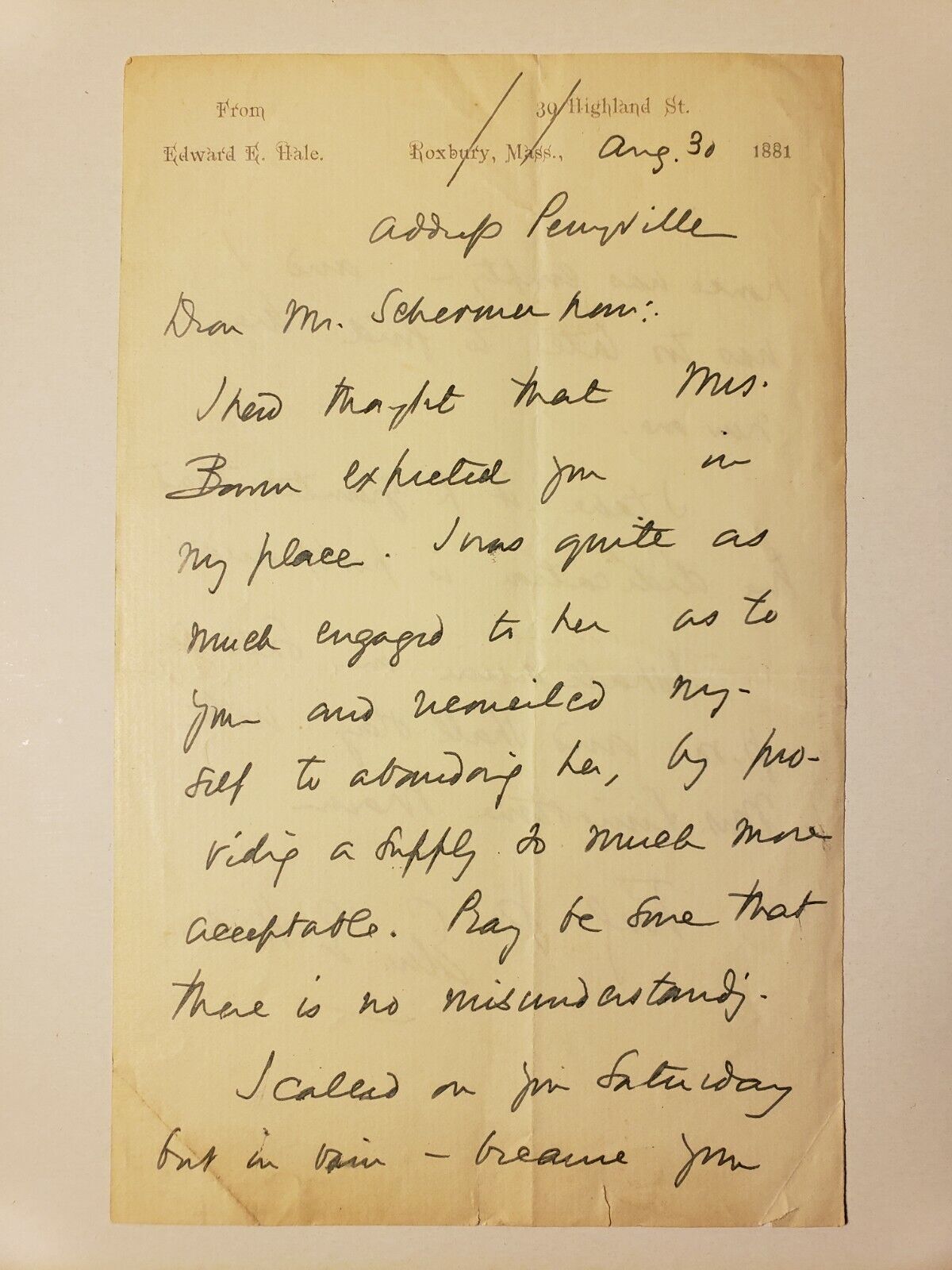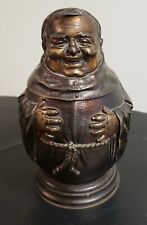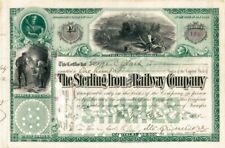1881 EDWARD E. HALE ALS SIGNED LETTER AUTHOR, HISTORIAN 'MAN W/O A COUNTRY' For Sale

When you click on links to various merchants on this site and make a purchase, this can result in this site earning a commission. Affiliate programs and affiliations include, but are not limited to, the eBay Partner Network.
1881 EDWARD E. HALE ALS SIGNED LETTER AUTHOR, HISTORIAN 'MAN W/O A COUNTRY' :
$299.99
[EDWARD E. HALE, AUTHORS, WRITERS, HISTORIANS]
On offer here is an ORIGINAL EDWARD E. HALE ALS (autograph letter signed) DATED 1881. In the letter, Hale writes to a Mr. Schemerman regarding his appearance and someone else appearing in his stead.
The 2 pp letter on Hale's personal stationery measures 5.0 in x 8.0 in and is in excellent condition.
________________________
Edward EverettHale (April 3, 1822 – June 10, 1909) was an American author, historian, andUnitarian minister, best known for his writings such as "The Man Without aCountry", published in Atlantic Monthly, in support of the Union duringthe Civil War. He was the grand-nephew of Nathan Hale, the American spy duringthe Revolutionary War.
Hale was born onApril 3, 1822, in Boston, Massachusetts, the son of Nathan Hale (1784–1863),proprietor and editor of the Boston Daily Advertiser, and Sarah PrestonEverett; and the brother of Lucretia Peabody Hale, Susan Hale, and CharlesHale. Edward Hale was a nephew of Edward Everett, the orator and statesman, andgrand-nephew of Nathan Hale (1755–1776), the Revolutionary War hero executed bythe British for espionage. Edward Everett Hale was also a descendant of RichardEverett and related to Helen Keller.
Hale was a childprodigy who exhibited extraordinary literary skills. He graduated from BostonLatin School at age 13 and enrolled at Harvard College immediately after.There, he settled in with the literary set, won two Bowdoin Prizes and waselected the Class Poet. He graduated second in his class in 1839 and thenstudied at Harvard Divinity School. Decades later, he reflected on the newliberal theology there:
The group ofleaders who surrounded Dr. [William Ellery] Channing had, with him, brokenforever from the fetters of Calvinistic theology. These young people weretrained to know that human nature is not totally depraved. They were taughtthat there is nothing of which it is not capable... For such reasons, and manymore, the young New Englanders of liberal training rushed into life, certainthat the next half century was to see a complete moral revolution in the world.
Hale waslicensed to preach as a Unitarian minister in 1842 by the Boston Association ofMinisters. In 1846 he became pastor of the Church of the Unity in Worcester,Massachusetts. Hale married Emily Baldwin Perkins in 1852; she was the niece ofConnecticut Governor and U.S. Senator Roger Sherman Baldwin and Emily PitkinPerkins Baldwin on her father's side and Lyman Beecher, Harriet Beecher Stoweand Henry Ward Beecher on her mother's side. They had nine children: Alexander,b & d 1853; Ellen Day, 1854–1939; Arthur, 1859–1939;Charles Alexander,1861–1867; Edward Everett, Jr., 1863–1932; Philip Leslie Hale, 1865–1931;Herbert Dudley, 1866–1908; Henry Kidder, 1868–1876; Robert Beverly, 1869–1895.
Hale left theUnity Church in 1856 to become pastor at the South Congregational Church,Boston, where he served until 1899.
In 1847 Hale waselected a member of the American Antiquarian Society,[6] and he would beinvolved with the society for the rest of his life, taking up various positionsin the service of the society. He served two non-consecutive terms on its boardof councilors, from 1852 to 1854, and a lengthy term from 1858 to 1891, and asrecording secretary from 1854 to 1858. He served as vice-president of thesociety from 1891 to 1906, served a shorter term as president from 1906 to1907, then again took up the position of vice-president from 1907 to 1909.
Hale first cameto notice as a writer in 1859, when he contributed the short story "MyDouble and How He Undid Me" to the Atlantic Monthly. He soon publishedother stories in the same periodical. His best known work was "The ManWithout a Country", published in the Atlantic in 1863 and intended tostrengthen support for the Union cause in the North. As in some of his othernon-romantic tales, he employed a minute realism which led his readers tosuppose the narrative a record of fact. These two stories and such others as"The Rag-Man and the Rag-Woman" and "The Skeleton in theCloset", gave him a prominent position among short-story writers of 19thcentury America. His short story "The Brick Moon", serialized in theAtlantic Monthly, is the first known fictional description of an artificialsatellite. It was possibly an influence on the novel The Begum's Fortune byJules Verne. He was elected a Fellow of the American Academy of Arts and Sciencesin 1865. In 1870, we was elected as a member to the American PhilosophicalSociety.
In recognitionof his support for the Union during the American Civil War, Hale was elected asa Third Class Companion of the Military Order of the Loyal Legion of the UnitedStates.
Hale assisted infounding the Christian Examiner, Old and New in 1869 and became its editor. Thestory "Ten Times One is Ten" (1870), with its hero Harry Wadsworth,contained the motto, first enunciated in 1869 in his Lowell Institute lectures:"Look up and not down, look forward and not back, look out and not in, andlend a hand." This motto was the basis for the formation of Lend-a-HandClubs, Look-up Legions and Harry Wadsworth Clubs for young people. Out of theromantic Waldensian story "In His Name" (1873) there similarly grewseveral other organizations for religious work, such as King's Daughters, andKing's Sons. In 1875, the Christian Examiner merged with Scribner's Magazine.In 1881, Hale published the story "Hands Off" in Harper's New MonthlyMagazine. In the tale, a narrator goes through time to alter events in thepast, thereby creating an alternate timeline. Paul J. Nahin writes that thisstory makes Hale a pioneer in emerging science fiction, time travel, andstories about changing the past.
In the early1880s Harriet E. "Hattie" Freeman became one of Hale's volunteersecretaries. Her family had been connected with Hale's church since 1861. AsHattie and Hale worked together they grew closer and closer. According tohistorian Sara Day, their relationship became loving and intimate. Day came tothis conclusion after studying 3,000 Hale-Freeman love letters (1884–1909) heldby the Library of Congress. The letters, donated to the library in 1969, hadheld their secrets until 2006 when Day realized that the intimate passages werewritten in Towndrow's shorthand.
In 1886, Halefounded Lend a Hand, which merged with the Charities Review in 1897, and theLend a Hand Record. Throughout his life he contributed many articles on avariety of subjects to the periodicals of his day including the North AmericanReview, the Atlantic Monthly, the Christian Register, the Outlook, and manymore. He was the author or editor of more than sixty books—fiction, travel,sermons, biography and history.
Hale retired asminister from the South Congregational Church in 1899 and chose as hissuccessor Edward Cummings, father of E. E. Cummings. By the turn of thecentury, Hale was recognized as among the nation's most important men ofletters. Bostonians asked him to help ring in the new century on December 31,1900, by presenting a psalm on the balcony of the Massachusetts State House.
In 1903 hebecame Chaplain of the United States Senate, and joined the Literary Society ofWashington. The next year, he was elected as a member of the Academy of Artsand Sciences.
Hale lived from1869 to his death at the Edward Everett Hale House in Roxbury. He maintained asummer home in South Kingstown, Rhode Island where he and his family oftenspent summer months.
Hale died inRoxbury, by then part of Boston, in 1909. He was buried at Forest HillsCemetery in Jamaica Plain, Suffolk County, Massachusetts. A life-size likenessin bronze statue memorializing the man and his works stands in the BostonPublic Garden.
Beliefs
Statue of Haleby Bela Pratt in the Boston Public Garden Boston, Massachusetts
Combining aforceful personality, organizing genius, and liberal practical theology, Halewas active in raising the tone of American life for half a century. He had adeep interest in the anti-slavery movement (especially in Kansas), as well aspopular education (involving himself especially with the Chautauquaadult-education movement), and the working-man's home.
He published awide variety of works in fiction, history and biography. He used his writingsand the two magazines he founded, Old and New (1870–75) and Lend a Hand(1886–97), to advance a number of social reforms, including religioustolerance, the abolition of slavery and wider education. Writer-educator MaryLowe Dickinson served as Hale's associate editor for Lend a Hand.
Hale supportedIrish immigration in the mid-19th century, as he felt the new workers freedAmericans from performing menial, hard labor. In a series of letters in theBoston Daily Advertiser, he noted the "inferiority" of immigrants:"[it] compels them to go the bottom; and the consequence is that we are,all of us, the higher lifted.”
Edward EverettHale's story “The Man Without a Country" (1863) opened with the sentence: “I wasstranded at the old Mission House in Mackinaw, waiting for a Lake Superiorsteamer which did not choose to come.” In his 1893 and 1900 reminiscences, Halestates that ‘To write the story of “The Man Without a Country” and its sequel,“Philip Nolan’s Friends,” I had to make as careful a study as I could of thehistory of the acquisition of Louisiana by the United States.
Please email any questions -

Related Items:
1881 BRONZE TOBACCO JAR PRESENT FROM PRINCE EDWARD OF WALES TO ADMIRAL H.GLYN
$2499.00
1881 EDWARD E. HALE ALS SIGNED LETTER AUTHOR, HISTORIAN 'MAN W/O A COUNTRY'
$299.99
E. H. Harriman transferred Sterling Iron and Railway Co. - Stock Certificate - A
$155.00



